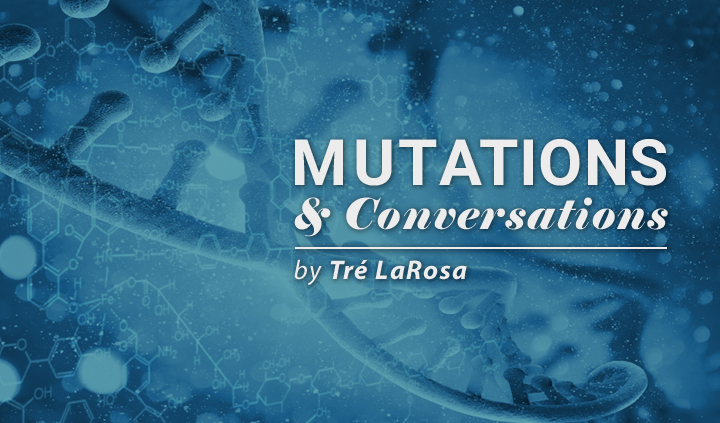Exploring Autonomy and Paternalism in the Doctor-patient Relationship
Written by |

All interpersonal relationships are a power struggle. With our friends, family, caretakers, providers, co-workers, and everyone else, we are pushing and pulling, and giving and receiving power in one way or another.
That’s not to say that everything in life is transactional; you don’t hold the door for someone and expect anything in return. But a warm “thank-you” makes us feel good and recognized for our kind gesture. (At least everything in life shouldn’t be transactional.)
I don’t think that the phrase “power struggle” has to imply manipulation or any form of deceit. I’m not even sure that term has to be a bad thing, though I think it probably carries a negative connotation because many people tend to believe that power struggles encourage people to withhold facts or honesty because they have to play their hand earlier than anticipated.
But to be clear, we have to expose our inner being in all interpersonal relationships. I think that’s what makes life fun. Getting to know somebody, talking about what makes us happy and why we live and do what we do, and developing deeper bonds with others are some of the best aspects of life that remind us that our existence is about so much more than material possessions.
These points are also true of our relationship with our care team, and primarily, our relationship with our doctors. For most of us with chronic diseases such as cystic fibrosis, our doctors can feel like authoritative figures. This isn’t their fault or inherently a negative thing; they are experts in our diseases and teach us how we should best take care of ourselves.
A relationship between a doctor and their patient represents a unique power dynamic, unlike most others. An abstract spectrum exists between the two extremes: the medical expertise that a doctor has about a disease — called paternalism — and the personal expertise that a patient has about their own body — known as autonomy.
In a situation where a doctor acts out of pure paternalism, the patient loses all autonomy. They are unable to make a decision for themselves, and as a sort of unintended consequence, they revoke all responsibility for their health status. The doctor chooses not to hear the patient’s side — their expertise about their body. This will lead to a breach of trust in the relationship; the patient is unlikely to be motivated to maximize their health.
On the other hand, if a doctor chooses to forgo their expertise and grant the patient full autonomy, it can be a breach of their own ethics and the medical code of the Hippocratic oath. Choosing not to employ their expertise would also violate the relationship between doctor and patient, but in a different sense: The patient’s health will likely suffer if the doctor isn’t using their expertise to guide them to a path toward optimal health.
Both of these situations are extremes in the power dynamic between doctor and patient, but they demonstrate the crucial point that all relationships, even those between doctor and patient, are about power dynamics. The ideal dynamic is one in which both strengths and skill sets are maximized.
It’s hard to overstate the snowball effects of finding the right blend of autonomy and paternalism between a doctor and a patient for both parties. The belief, at least in American society, for physicians to be perfect practitioners of medicine, puts them in a precarious position. They are expected not only to be experts on the human body and the effects of disease but also effective and gentle communicators.
If a patient doesn’t respond the first time, doctors are expected to continuously remind them of the necessity of care. And if things don’t go as expected, the doctor is often blamed. If we recognize patient autonomy in relation to physician paternalism, the relationship becomes far more collaborative.
All of this brings us to the matter of why this balance in the relationship is good for patients. It allows patients, who are already experts on their bodies, to become experts on the breadth of their disease. It encourages patients to self-advocate and encourages doctors to listen when they do.
This balance in the relationship enables a much healthier feedback loop. So, doctors, please listen to us and give us a chance to be our best selves. And patients, please recognize that doctors are trying to help us to be better. We must understand their expertise. Everyone benefits from this understanding.
Follow along with my other writings on my humbly named site, www.trelarosa.com or subscribe to my newsletter at trelarosa.substack.com.
***
Note: Cystic Fibrosis News Today is strictly a news and information website about the disease. It does not provide medical advice, diagnosis, or treatment. This content is not intended to be a substitute for professional medical advice, diagnosis, or treatment. Always seek the advice of your physician or other qualified health provider with any questions you may have regarding a medical condition. Never disregard professional medical advice or delay in seeking it because of something you have read on this website. The opinions expressed in this column are not those of Cystic Fibrosis News Today, or its parent company, Bionews Services, and are intended to spark discussion about issues pertaining to cystic fibrosis.







Leave a comment
Fill in the required fields to post. Your email address will not be published.